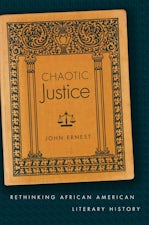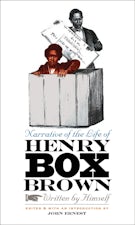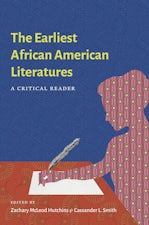Before Equiano
A Prehistory of the North American Slave Narrative
By Zachary McLeod Hutchins
306 pp., 6.125 x 9.25, 14 halftones, 4 tables, notes, bibl., index
-
Paperback ISBN: 978-1-4696-7154-3
Published: December 2022 -
Hardcover ISBN: 978-1-4696-7153-6
Published: December 2022 -
E-book EPUB ISBN: 978-1-4696-7155-0
Published: December 2022 -
E-book PDF ISBN: 979-8-8908-6234-1
Published: December 2022
Buy this Book
- Paperback $32.95
- Hardcover $99.00
- E-Book $26.99
For Professors:
Free E-Exam Copies
About the Author
Zachary Hutchins is associate professor of English at Colorado State University and co-editor of The Earliest African American Literatures: A Critical Reader.
For more information about Zachary McLeod Hutchins, visit
the
Author
Page.
Reviews
"Hutchins makes an important contribution to the growing scholarly interest in expanding our understanding of what a published 'slave narrative' was by investigating the eighteenth-century origins of what is usually understood to be a nineteenth-century Anglo-American genre."—H-Early-America
"In a work of impressive scope, Hutchins takes on the challenging task of delineating the prehistory of the slave narrative and how slavery was understood in the American colonies, while also helping readers understand the role of newspapers in both the development of and resistance to slavery as an institution."—Karen Weyler, University of North Carolina at Greensboro
"Hutchins offers an in-depth and thought-provoking analysis of some of the earliest examples of slave narratives produced in North America that attends to their formal diversity as well as to the political and cultural contexts of their creation. Hutchins’s work will have great import for the development of a wide variety of scholarly fields and debates."—Nicole N. Aljoe, Northeastern University




